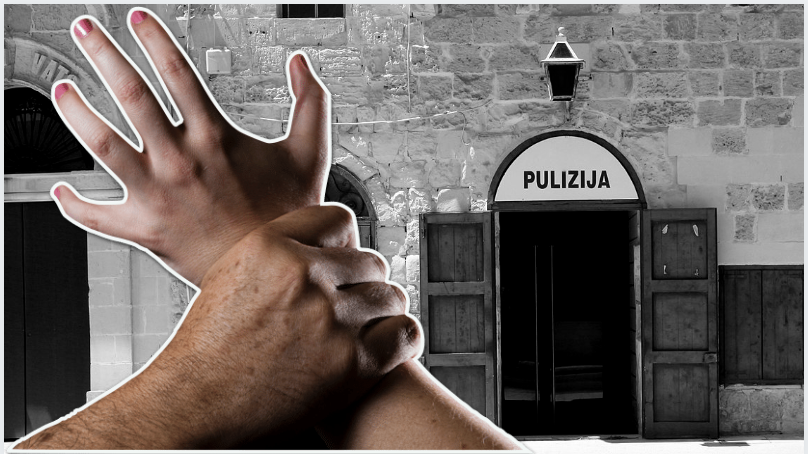Why Do 85% Of Sexual Assaults Go Unreported In Malta? A University Dissertation Found Out

Malta’s fight to curtail sexual assaults faces many challenges with one assault being reported every three days. However, with an estimated 85% of victims reluctant to report the crime, Maltese authorities have only started to scratch the surface with the issue threatening to remain silent.
One University of Malta study has finally looked at the reasons why victims in the country are being forced into silence.
In a dissertation for the Criminology Department, Dylan Buttigieg spoke to officials in Aġenzija Appoġġ, the Victim Support Unit, Victim Support Malta, the Vice Squad, and Probation and Parole Services to examine some of the most crucial factors in preventing victims from seeking justice.
Here’s what he uncovered:
1. Most victims know their offenders

There were just under 1,300 sexual offences reported to the police over 11 years according to official figures. But it fails to paint a full picture when victims are driven to silence in a Maltese society where abuse often takes place within tight-knit communities and in some cases amongst relatives.
In Malta, most victims know their attacker, whether it’s partner, spouse, relative, friend, acquaintance, or colleague.
When the offender is someone who the victim knows, everything, including decisions on whether to report the crime or not, becomes more complicated. It creates a myriad of fresh obstacles, especially when the victim is feeling fear, shame, or has simply been manipulated into normalising the abuse.
A stranger, Buttigieg says, cannot stalk, threaten or harass them the same way a known offender can. Figures back him up, with officials indicating that 25% of offenders are likely to retaliate against their victims should they be contacted by the police about the assaults.
By virtue of their relationship with the victims, offenders could also psychologically traumatise their victims to the extent that victims either fail to realise that a sexual assault occurred or potentially internalise the acts and accept their fate as perpetual victims.
It creates a significant issue among children who are sexually assaulted since they generally report the crime later in their lives. Time-barring prevents victims from reporting the assault to the police after a certain period. Minors, for example, are given 10 to 15 years (depending on the case) to report the crime.
This means that if a person were seven years old when they were sexually abused, they would have till 23 to come forward.
2. Fear

Fear of retaliation is also a key stumbling block preventing victims from coming forward, with their privacy and personal safety immediately being placed in jeopardy once they have been sexually assaulted.
All the participants in the study made reference to threats from the perpetrators to prevent them from reporting the attack, whether they were real or implied.
The issue is further strained when the victim knows the offender, with threats more likely to be realised when the perpetrator is within reach of the victim.
3. Shame

Participants in the dissertation agreed that it was evident that in every case of sexual assault, shame prevails. One suggested that it could take up to 40 years for a victim to overcome the initial shame to disclose their attack to someone – if ever.
Echoing other literature on the issue, it’s made clear that shame is often one of the leading causes perpetuating the culture of silence. Victim-blaming, a judgemental criminal system, and even pressure from the victim’s own family increase the feeling of guilt and blame.
When the offender is a family member or is known to the victim, the issues of victim-blaming and familial seclusion increase dramatically.
4. Misconceptions of the judicial system

Misconceptions about the Criminal Justice System as a whole, and misconceptions about what constitutes sexual assault, could both lead victims of sexual assault not to report the crime.
Most victims, the participants say, do not consider rape or even marital-rape as sexual assault. The same applies to coerced consent, with many feeling that rape is the only form of sexual assault.
A lack of trust in the criminal justice system is also an issue, with one-off bad experiences leaving victims with a poor impression of Maltese officers.
5. Social learning

Victims of a sexual assault can also lose their self-worth as a consequence of the attack, and as a result, be more susceptible to mistaking future abuse as either love or affections. It’s a reason why some victims are targeted in the first place and can leave long-lasting effects.
They can also internalise what happened to them and pursue an abusive relationship where the culture of victimisation continues. In some cases, they can even resent their abuse to the point that they become abusers themselves.

So what is the way forward?
Pseudo-anonymous online reporting could help, Buttigieg suggests. Currently, anyone who wants to report a crime must first go to the local station, within ear-shot of anyone who happens to be in the station at the time.
It makes an already tense situation far worse, and a modern offence reporting mechanism would address it. Victims instead should be allowed to file a police report from the safety of their homes.
Victims will still need to put in their personal details – as is usually required. Still, it will guarantee some pseud-anonymity for the victims.
With a lack of research, further study into the phenomenon is merited. However, it will not be enough, and an intra-ministerial approach would tackle the current research void, while also working in a legal framework to set up awareness campaigns and similar initiatives.
Whatever the case, with potentially hundreds of assaults going unreported, Malta’s authorities must realise it’s a matter of when not if they should tackle the silent issue.
Share if you think more work needs to be done by Maltese authorities on the issue!